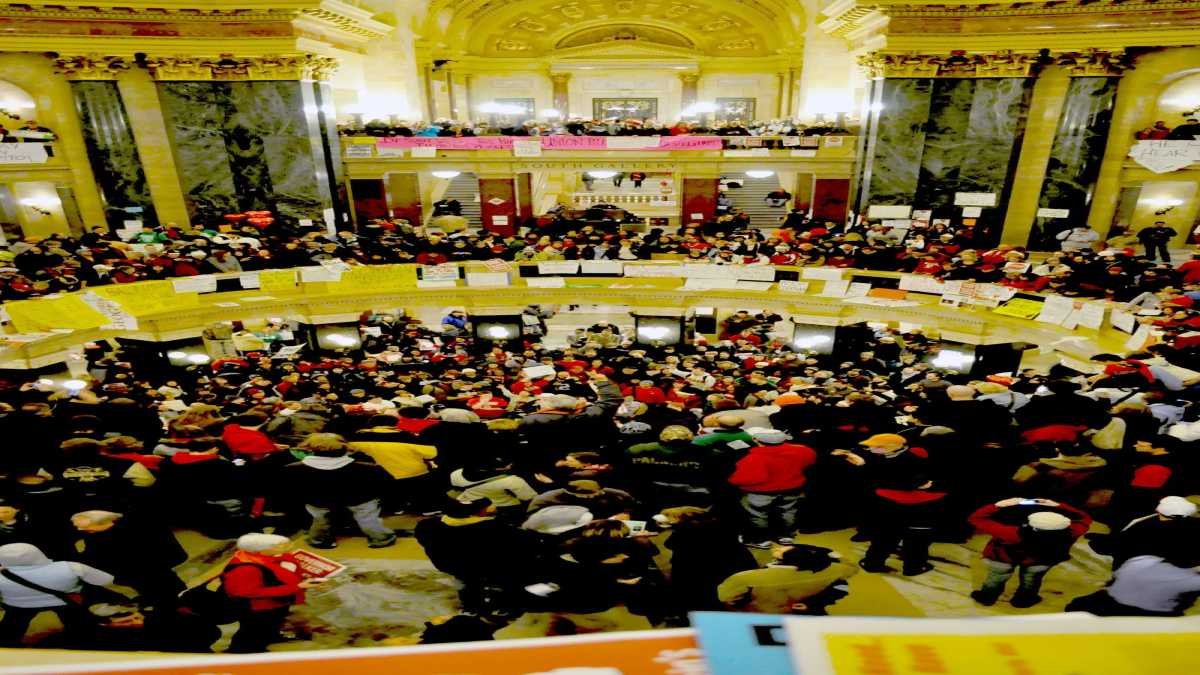Wisconsin Judge Restores Public Sector Union Bargaining Rights
A Wisconsin judge ruled to restore collective bargaining rights for public sector workers, reversing key provisions of the controversial 2011 Act 10 law. The decision has reignited political and legal battles over union rights and could ultimately be decided by the state Supreme Court.

In a landmark decision on Monday, Dane County Circuit Judge Jacob Frost ruled in favor of restoring collective bargaining rights to Wisconsin public sector employees. The ruling strikes down key provisions of the 2011 law known as Act 10, which had severely restricted the ability of most public workers to negotiate wages, benefits, and working conditions.
Judge Frost’s ruling grants all public employees the same bargaining rights that police, firefighters, and other public safety workers retained under Act 10. The law, championed by former Republican Governor Scott Walker, had sparked massive protests in Madison and turned Wisconsin into a flashpoint for the national debate over union rights.
Republican leaders quickly announced plans to appeal the decision, setting up a potential showdown in the Wisconsin Supreme Court, where the balance of power recently shifted to a 4-3 liberal majority. This has heightened the stakes for the April 2024 Supreme Court election, which could determine the ruling’s ultimate fate.
Political and Public Reactions
Governor Tony Evers, a Democrat, praised the decision as “a step in the right direction,” emphasizing the importance of unions for public employees. However, Evers acknowledged that legal battles are far from over.
Former Governor Scott Walker condemned the ruling, calling it “brazen political activism” in a post on X, formerly Twitter. He defended Act 10 as a necessary measure to save taxpayers billions of dollars and warned that reversing it could bankrupt schools and local governments.
“This judge is wrong on all counts—not just on policy but on the legal issues as well,” Walker said in a video response.
Union leaders, however, celebrated the decision as a victory for workers’ rights. Ben Gruber, president of AFSCME Local 1215, stated, “We realize there may still be a fight ahead of us in the courts, but we’re ready to keep fighting until we all have a seat at the table again.”
Legal and Financial Implications
Supporters of Act 10 have argued that the law helped local governments control costs by requiring employees to contribute more to health insurance and retirement benefits. The law also limited bargaining to wage increases no higher than inflation, disallowed automatic union dues collection, and mandated annual union recertification votes.
Critics say Act 10 weakened public services by driving down morale and making it harder to attract and retain qualified employees. The law also led to a sharp decline in union membership across the state. A 2022 Wisconsin Policy Forum report found that Wisconsin had experienced the steepest decline in union membership among U.S. states since 2000.
Judge Frost’s ruling argued that Act 10’s exemptions for public safety workers violated equal protection guarantees under the Wisconsin Constitution by creating two unequal classes of public employees. His ruling specifies that dozens of provisions in the law must be invalidated.
Republican Assembly Speaker Robin Vos dismissed the ruling as meritless and vowed an aggressive appeal. “Despite Act 10 being upheld repeatedly by state and federal courts, an activist Dane County judge decided to issue a ruling suddenly deciding Wisconsin’s law is unconstitutional,” Vos said.
Next Steps
The legal battle over collective bargaining rights is far from resolved, with an appeal almost certain. The outcome could have profound implications for public sector unions and state policies. For now, the ruling has reignited a decade-old debate about the role of unions in balancing budgets and protecting worker rights in Wisconsin.






